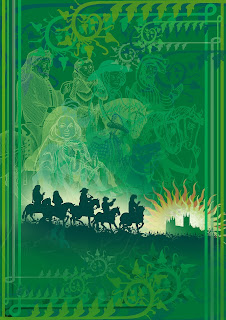Middle English
The Normans from Normandy in northern France invaded England in 1066 CE. They took over the reign of Britain. They spoke French which became a language for the elite in England. They introduced new words like ‘cash’, ‘reward’, ‘age’, ‘damage’, ‘jury’, ‘justice’, ‘parliament’, ‘prison’, marriage’, etc to the English language.
The transition was gradually made to Middle English. Over time, the
ruling Normans ceased to speak authentic French. Rather, their language became
a Middle English and French hybrid. The
common folk of England however continued to converse in Old English for a while.
Though modern English and Middle English are similar to the
human ear, the latter language may seem quite incomprehensible to us now. Many
works from this era have been preserved today, the most renowned of which is ‘The Canterbury Tales’ by Geoffrey Chaucer, authored
600 years ago.
This literary text is a poetry collection
regarding various people journeying to Canterbury town. This Middle English
poem artistically chronicles society and the people of the age. Some of the
work’s characters are wise, brave and nice. Others are silly and mean.
https://pixabay.com/illustrations/canterbury-tales-canterbury-pilgrims-1730722/:
Picture courtesy: Image of The
Canterbury Tales by Alasdair
Macleod from Pixabay
#Normans, #Normandy, #France, #England, #Britain, #words, #cash,
#reward, #age, #damage, #jury, #justice, #parliament, #prison, #marriage, #English,
#language, #OldEnglish, #MiddleEnglish, #TheCanterburyTales, #GeoffreyChaucer, #poem, #poetry,
#literature, #ear, #society, #history, #culture, #philology, #conversation




Comments
Post a Comment